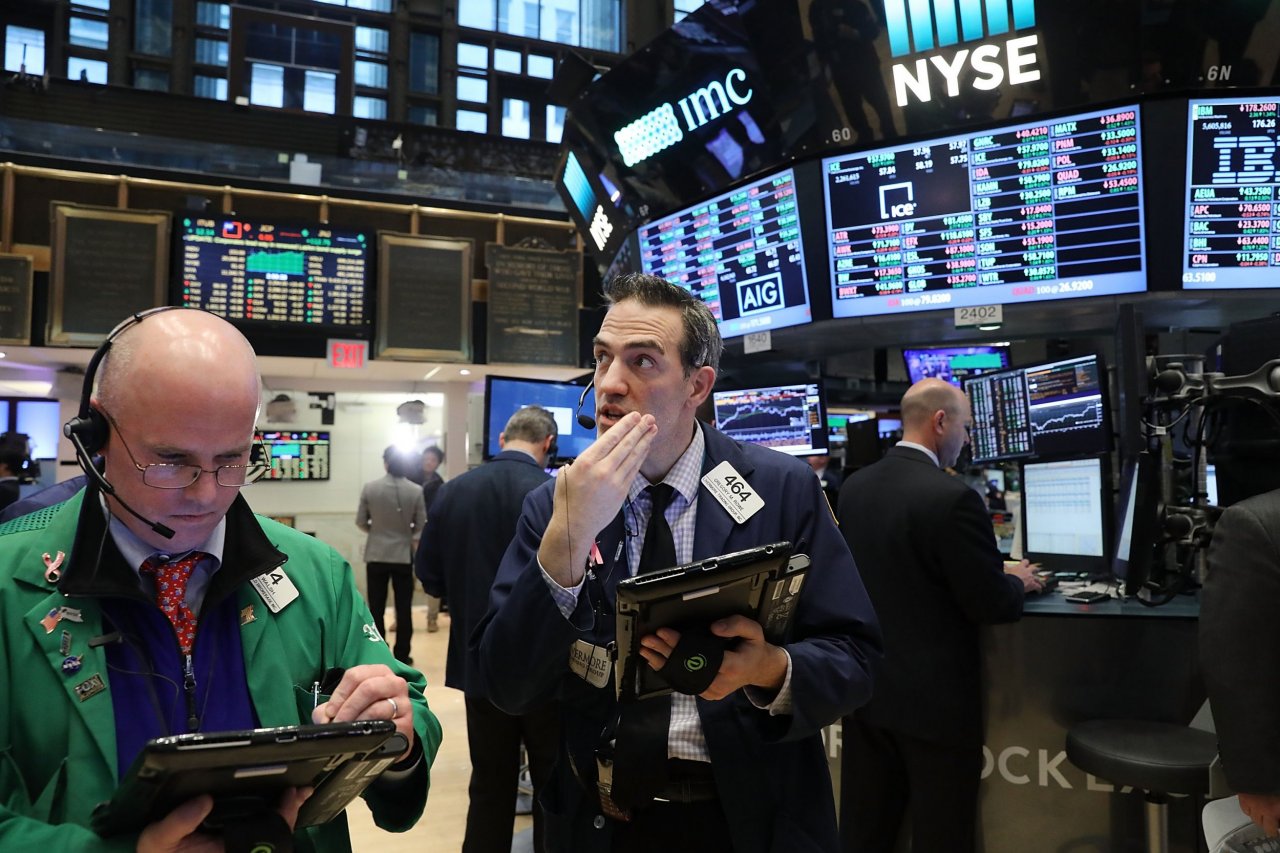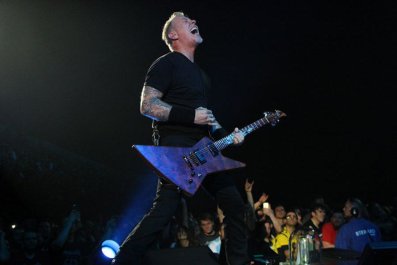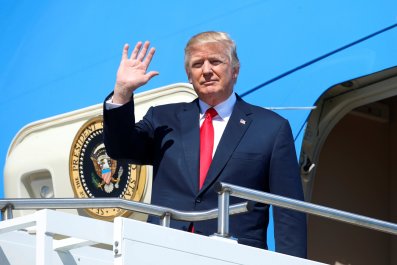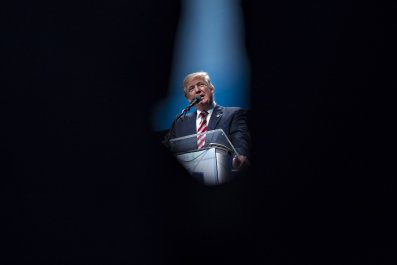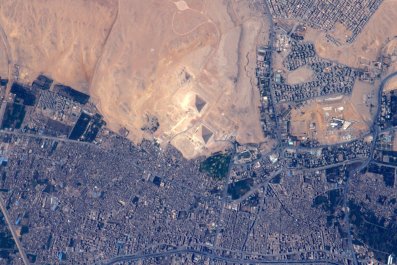For the past year, we as a society have been worried sick about artificial intelligence eating the jobs of 3 million truck drivers. Turns out that a more imminently endangered species are the Wall Street traders and hedge fund managers who can afford to buy Lamborghinis and hire Elton John to play their Hamptons house parties.
So maybe "hooray for AI" on this one?
Financial giants such as Goldman Sachs and many of the biggest hedge funds are all switching on AI-driven systems that can foresee market trends and make trades better than humans. It's been happening, drip by drip, for years, but a torrent of AI is about to wash through the industry, says Mark Minevich, a New York-based investor in AI and senior adviser to the U.S. Council on Competitiveness. High-earning traders are going to get unceremoniously dumped like workers at a closing factory.
"It will really hit at the soul of Wall Street," Minevich tells me. "It will transform New York."
Software is Always Learning
Some of these AI trading systems are being built by startups such as Sentient in San Francisco and Aidyia in Hong Kong. In 2014, Goldman Sachs invested in and began installing an AI-driven trading platform called Kensho. Walnut Algorithms, a startup hedge fund, was designed from the beginning to work on AI. Infamously weird hedge fund company Bridgewater Associates hired its own team to build an AI system that could practically run the operation on its own. Bridgewater's effort is headed by David Ferrucci, who previously led IBM's development of the Watson computer that won on Jeopardy!
AI trading software can suck up enormous amounts of data to learn about the world and then make predictions about stocks, bonds, commodities and other financial instruments. The machines can ingest books, tweets, news reports, financial data, earnings numbers, international monetary policy, even Saturday Night Live sketches—anything that might help the software understand global trends. The AI can keep watching this information all the time, never tiring, always learning and perfecting its predictions.
RELATED: How robots will save the global economy
A report from Eurekahedge monitored 23 hedge funds utilizing AI and found they outperformed funds relying on people. Quants, the Ph.D. mathematicians who design fancy statistical models, have been the darlings of hedge funds for the past decade, yet they rely on crunching historical data to create a model that can anticipate market trends. AI can do that too, but AI can then watch up-to-the-instant data and learn from it to continually improve its model. In that way, quant models are like a static medical textbook, while AI learning machines are like a practicing doctor who keeps up with the latest research. Which is going to lead to a better diagnosis? "Trading models built using back-tests on historical data have often failed to deliver good returns in real time," says the Eurekahedge report.
Human traders and hedge fund managers don't stand a chance, in large part because they're human. "Humans have biases and sensitivities, conscious and unconscious," says Babak Hodjat, co-founder of Sentient and a computer scientist who played a role in Apple's development of Siri. "It's well-documented we humans make mistakes. For me, it's scarier to be relying on those human-based intuitions and justifications than relying on purely what the data and statistics are telling you."
So what's going to happen to the finance people who find themselves standing in front of the oncoming AI bus? Well, average compensation for staff in sales, trading and research at the 12 largest investment banks is $500,000, according to business intelligence company Coalition Development. Many traders earn in the millions. In 2015, five hedge fund managers made $1 billion or more, according to an industry survey. If you think Carl's Jr. is motivated to replace $8-an-hour fast-food workers with robots, imagine the motivation to dump million-dollar-a-year ($500 an hour!) traders.
What Happens to Traders?
Goldman Sachs shows just how devastating automation can be to traders. In 2000, its U.S. cash equities trading desk in New York employed 600 traders. Today, that operation has two equity traders, with machines doing the rest. And this is before the full brunt of AI has come into play at Goldman. "In 10 years, Goldman Sachs will be significantly smaller by head count than it is today," Daniel Nadler, CEO of Kensho, told The New York Times. Expect the same to happen on every trading floor at every major financial company.
Much of America is not going to weep for the types of people depicted in The Wolf of Wall Street, yet this new AI reality could be devastating in many ways. Imagine the impact on high-end real estate in New York. Think of the "For Sale" signs on summer beach homes in Southampton. How will luxury retailers survive the likely dip in sales of $2,000 suits and $5,900-per-pound white truffles? Maybe Donald Trump will be driven to demand that somebody bring back traders' jobs, thinking they've moved to Mexico.
Minevich, though, sees a net positive if AI drives brilliant people out of finance and into, well, almost anything else.
As the surest, fastest path to million-dollar paydays, Wall Street trading and hedge fund managing have long soaked up a large chunk of America's best and brightest. About one-third of graduates from the top 10 business schools go into finance. Only a tiny sliver, usually around 5 percent, go into health care. An even smaller percentage go into energy or manufacturing businesses, and you can count on two hands the number who take jobs at nonprofits each year.
Most of the rest of society looks at that and sees selfishness. Yeah, sure, we need liquid markets and financial instruments and all that. But if we're going to pay a group of people so much money, maybe we'd be better off if they were inventing electric cars that go 1,000 miles on a charge, or healthy vegetarian kielbasa, or babies who don't cry on airplanes. Just do something that brings tangible benefits to the masses.
"Some of these smart people will move into tech startups, or will help develop more AI platforms, or autonomous cars, or energy technology," Minevich says. That could be really helpful right now, since the tech industry is always fretting that it doesn't have enough highly skilled pros and might be facing a geek drought in the age of Trump travel bans. If the MBA elite leave Wall Street but stay in New York, Minevich adds, "New York might compete with Silicon Valley in tech."
As math Ph.D.'s no longer find that hedge fund recruiters are salivating over them, they might leap into efforts to model climate change or the behavior of cancer cells in the body. The National Security Agency's website says it "is actively seeking mathematicians to work on some of our hardest signals intelligence and information security problems." Math whizzes could help catch terrorists! Or liberals!
The pay for a mathematician at the National Security Agency is around $100,000. Compared with a hedge fund salary, that would be a major lifestyle downgrade. But at least the traders and quants will have options, which is more than we can say for truck drivers and other workers threatened by AI.
There's one other benefit to AI machines taking over finance. Ben Goertzel, chief scientist at Aidyia, says his machine will never need human intervention. "If we all die, it would keep trading," he once said.
So if Trump pulls out the nuclear codes and pushes the button, at least some people will still get a good return on their 401(k)s.



